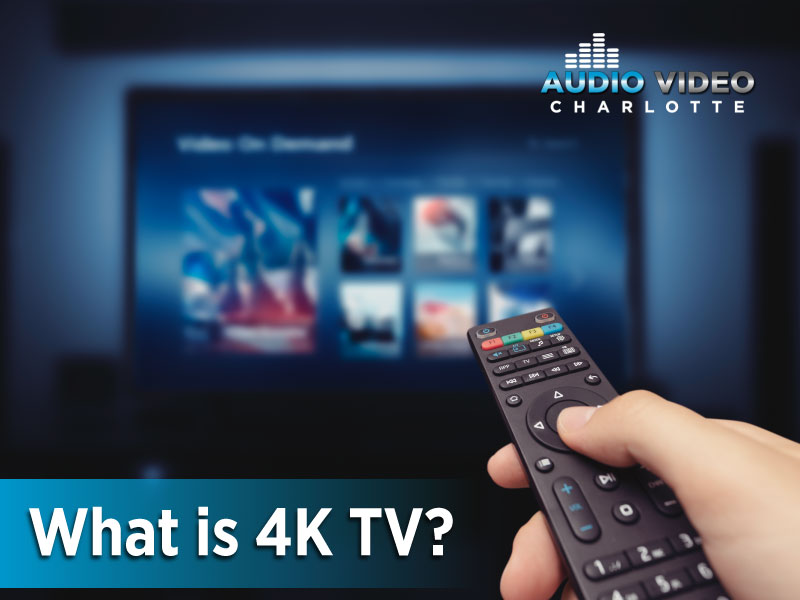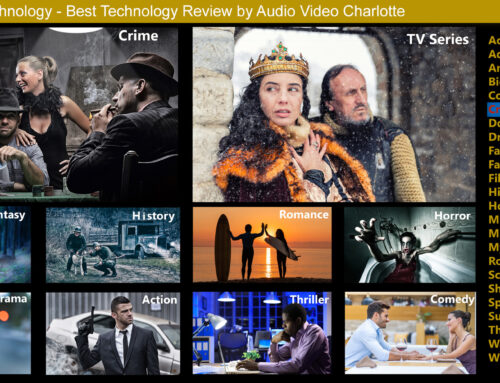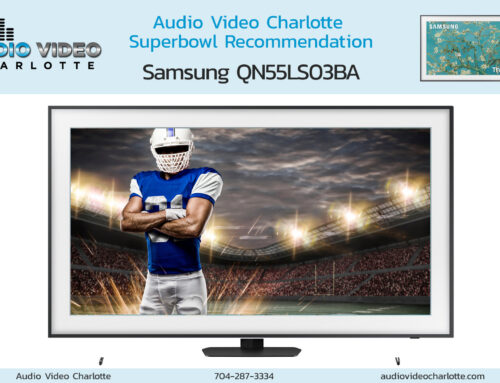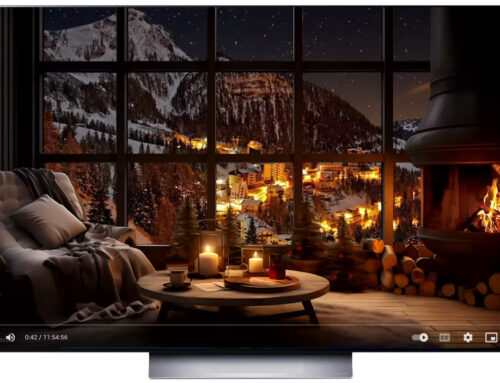People are increasingly looking to upgrade their television watching experience. Most seek to improve their viewing by buying a new television, while navigating the increase of technological advances and terms makes the process difficult. A phrase you’ll increasingly see when in the market for buying a new TV is “4K.”
But what exactly is 4K HD?
4K Ultra HD is how we describe a screen whose resolution is four times that of a full HD TV (1080P.) That size difference provides 8 million pixels in the same space while a Full HD TV is only capable of 2 million pixels. This difference creates a clearer, more colorful image.
4K technology is the foundation of many new modern TVs. In 2018, a third of TVs made use of 4K technology, a number that has only increased since. 4K sits at the top of the television market, as the primer technology for a superior viewing experience.
When you have every pixel contributing to the whole image, a difference of 6 million is truly night and day. HDR, “high dynamic range,” is another aspect that can add a more easily appreciated picture, details that we’ll look to examine later.
While this bit of information is necessary– if you know you’re looking to make the purchase– go to Audio Video Charlotte. Local professionals can provide all the necessary knowledge in your search for TVs.
Is there a difference between 4K and UHD?
UHD TVs serve as a successor to the Full HD TV discussed earlier, resulting in over four times the pixels of its predecessor. While it is a result of the technological advancement and improvement of the UHD TV, it does not make the TV a 4K TV, despite those terms commonly being used interchangeably.
4K has more pixels than the UHD, thanks to its arrangement of both horizontal and vertical pixels. (This sometimes leads to folks calling 4K, 4K2K.) The two forms of technology even have different origins, with UHD being used for display equipment and broadcasting purposes, while 4K has always been focused on cinema and general viewing purposes.
Still, most UHDs advertise as a 4K visual, making the process of identifying the right purchase a difficult one. Some great examples of solid 4K TVs are the LG 77” C1 and the Samsung QLED 4K 85″ TV, both sold by Audio Video Charlotte.
What is HDR and do 4K TVs have it?
HDR, as alluded to earlier, is short for “high dynamic range.” HDR serves as another way to improve image quality, in tandem with 4K and other resolution technologies. One important thing to realize in the process of understanding HDR is just how important both contrast ratio and color accuracy are to a good image.
Contrast Ratio controls how dark and bright a TV can get. Keeping the dark parts dark and the bright parts bright creates an easy-to-identify pleasant image, recognizable by even the most casual viewers. It’s fairly easy to understand how a wash of brightness mutes an image, much in the same way too much darkness would.
Color accuracy is another aspect, simpler to understand than the former, enhanced by HDR. Imagine your TVs technology as a painter’s palette, with superior color accuracy being akin to more and more options for the painter to use. Wide color gamut is another aspect of technology possible through HDR. It literally makes previously impossible color combinations possible. You can imagine the impact on your viewing when imaging the painter unlocking never-before-used colors.
High Dynamic Range, HDR, seeks to give you both the brightness and color options that will rival real-life scenery. Its inclusion in most modern 4K TVs and its being among Audio Video Charlotte’s expertise, make it a possible addition to your entertainment repertoire.
Where can I watch 4K Ultra HD content?
4K Ultra HD content is the way we describe 4K alongside HDR technology.
With achievements like previously impossible colors, a range of brightness never before utilized, and a promise of real-life beauty, you may be wondering where you can watch 4K Ultra HD content.
This is content you can access at home, thanks to streaming platforms and devices. Still, only the right support from your media can allow you to utilize the technology. Below is a run-down of the most used apps and the ways you can view content in 4K Ultra HD.
Amazon Prime has plenty of support for the new technology. With a majority of its original releases and blockbuster movies hosting ultra HD support, it’s important to look for titles with the HDR format.
Both Apple TV+ and Disney+ mirror Amazon’s approach. Originals and larger releases supporting the technology will be identifiable by a logo as well.
HBO MAX, a go-to for newer movie releases, knows you’re seeking to emulate the theater feel in the home. So many of the straight-to-streaming big titles offer 4K Ultra HD support.
Hulu has had a volatile history with 4K support, having even pulled the plug from its support all together at one point. Still, the streaming platform is reinvesting in the technology with many of its new releases offering some version of support.
Netflix, the original streaming giant, has begun to shoot every new original release in 4K HDR. This alone offers a robust selection to utilize the premier technology. Titles are listed as 4K compatible in their respective descriptions. (Though the option is locked to a higher per-month subscription.)
Finally, Youtube even offers Ultra HD Support. With a recent HDR launch and options to purchase or rent movies on the app, the usual user-generated video platform has enough options to keep you happy.
Another exciting bonus– it’s easy! The user does not have to go through any additional steps, your technology will adapt on startup!
While this list is by no means definitive it shows that the new Ultra HDR Technology is still easily accessible and ready to be viewed from the comfort of your own home. With streaming companies increasingly producing with Ultra HD devices in mind, the jump to crystal clear viewing has never looked so exciting.
Audio Video Charlotte also has the know-how to set up the apps and wi-fi connection upon installation, another advantage of shopping with experienced technicians.
Are 4K televisions future-proof?
But are 4K televisions future-proof? You may be asking yourself that very question. The investment in a new television is intimidating and you want to be sure that you’re not quickly outpaced, as is common with newer technology.
Simply put, the future is already here. Much of new media, as evidenced by the previous information on streaming platforms and their production, is created with 4K in mind. If anything, you’re likely getting technology compressed and minimized when broadcasted to your older device.
4K televisions are future-proofed because they’re the product most considered by media companies and producers. You can rest assured, your investment is both future-proof and guarantees maximization of your entertainment needs.
What are the top 4K TVs that Audio Video Charlotte installs?
Audio Video Charlotte is ready to not only sell you the 4K TV you’re looking for, but they’re also prepared to install it. Below are some of your 4K options.
-The Samsung QLED 80 and Samsung QLED 4K 85″ TV
-The Samsung Frame 65”
-The Sony XR 65x 90j and Sony xr55a90j OLED
-The LG 77” C1
All of these products offer the best technology possible to bring you a great viewing experience. Ask an Audio Video Charlotte technician which one would work best for you and your entertainment space!
Audio Video Charlotte also offers price matching. Alongside professional installers, you’ll also be sure you’re getting the best price for your new 4K TV.
Conclusion
Investing in a new TV and/or streaming device can be intimidating. There are so many products on the market that offer very similar features and benefits that it is hard to know just what is best for you. Even more, new terms related to ever-advancing technology bring even more discomfort to your buying experience.
Thankfully, Audio Video Charlotte can walk you through this process and we can even provide and install the tech in your home, stress-free. Give us a call today to schedule your free in-home consultation.






